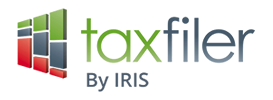Deadline for child benefit tax
Changes to the high income child benefit charge mean some couples will pay less tax. Others can also benefit but must take steps to do so. What’s required and when?

HICBC recap
The high income child benefit charge (HICBC) has been contentious since it was introduced in 2013. It applies to individuals or their partners who have children and claim child benefit. Because of the unfair way in which it applies, until April 2024 a couple with one income exceeding £50,000 per annum were liable to the HICBC, while a couple with a joint income of over £50,000 per annum were not.
Budget changes
This inequity was addressed in the 2024 Spring Budget. The Chancellor announced that HMRC will consult on changes that will take account of household income rather than only that of the highest earner. While no date has been set for when changes will become effective, it’s hoped it will be no later than 6 April 2025. In the meantime, a temporary easing of the HICBC applies for 2024/25. For 2024/25 the HICBC threshold increased to £60,000 and the clawback rate is 1% for every £200 of income in excess of the threshold (half the previous rate). The effect of this is that a couple where the highest earner’s income is less than £80,000 will not lose all their child benefit to the HICBC.
Opted out
Many individuals and couples who are entitled to child benefit opted out of claiming it because they knew that the whole amount would be clawed back through the HICBC. However, because of the changes to the income threshold and rate many will now be better off claiming child benefit.
Child benefit is not given automatically, it must be claimed. If you haven’t registered for the benefit because of the HICBC, you should consider if you will now be better off doing so. To get the full entitlement for 2024/25 you must submit a claim no later than 5 July 2024.
Related Topics
-
HMRC updates guidance for claiming new allowance
Qualifying expenditure on plant and machinery can qualify for a 40% first-year allowance from 1 January 2026. HMRC has now updated its guidance to help make claims. What do you need to do?
-
Get ready for Making Tax Digital for Income Tax
If you’re one of the (un)lucky individuals who need to join Making Tax Digital for Income Tax (MTD IT) from 6 April 2026, you probably know that this involves submitting regular, digital records to HMRC. But what do you need to do to prepare?
-
CT61









 This website uses both its own and third-party cookies to analyze our services and navigation on our website in order to improve its contents (analytical purposes: measure visits and sources of web traffic). The legal basis is the consent of the user, except in the case of basic cookies, which are essential to navigate this website.
This website uses both its own and third-party cookies to analyze our services and navigation on our website in order to improve its contents (analytical purposes: measure visits and sources of web traffic). The legal basis is the consent of the user, except in the case of basic cookies, which are essential to navigate this website.